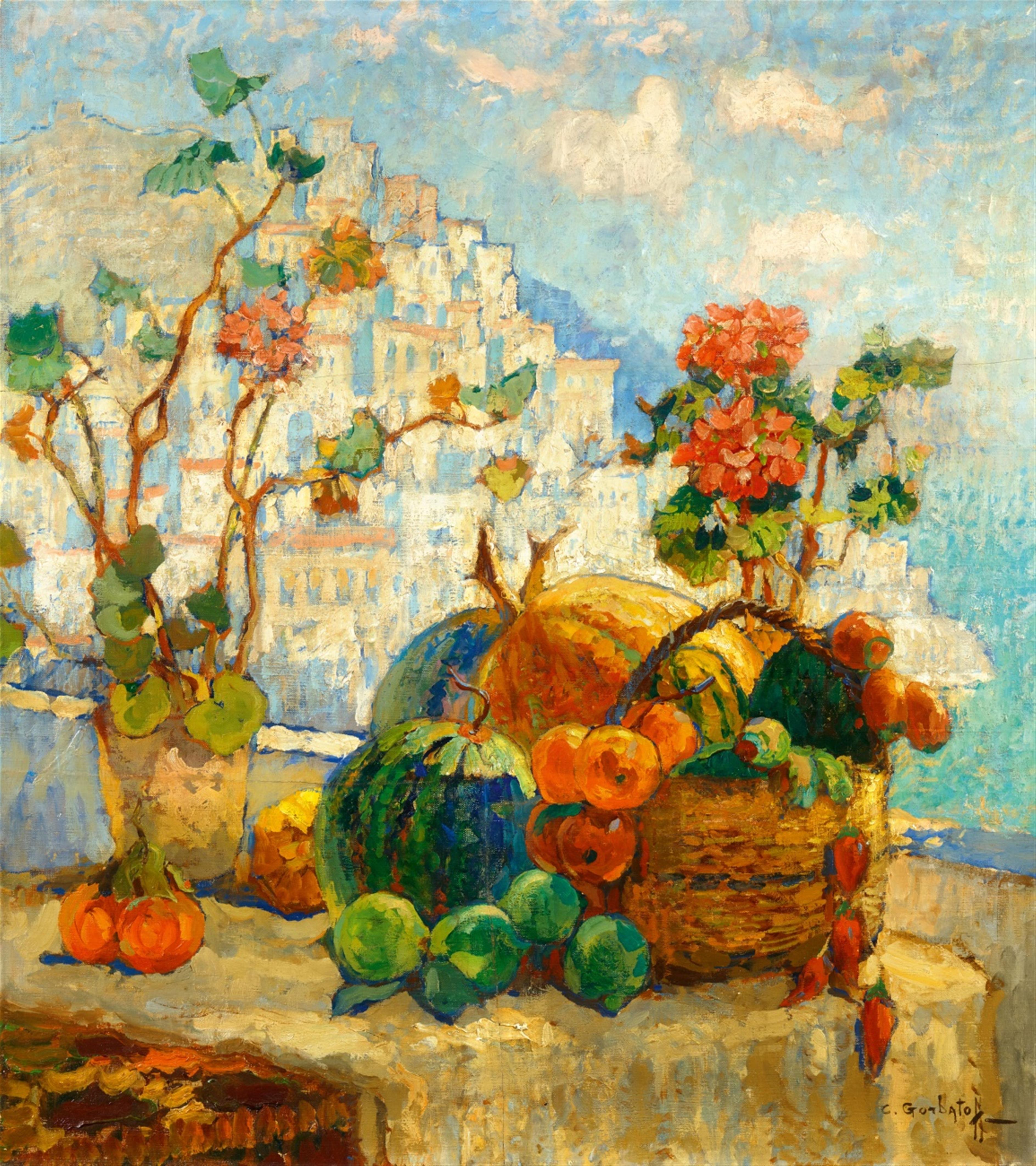Constantin Ivanovitch Gorbatoff
Backlit Houses - Still Life in Capri
Oil on canvas (relined). 90 x 80 cm.
Signed lower right: C. Gorbatoff.
This colourful still life by the Russian painter Constantin Ivanovitch Gorbatoff is an impressive example of the unique emotive appeal of Russian Impressionism. Gorbatoff has carried out the initial sketch with bold blue lines in broad brushstrokes, a method characteristic of his manner of working.
The artist presents a vividly coloured still life against the brightly lit facades of the Italian coastal setting. Alongside his beloved geraniums he places ripe, juicy fruit, half overshadowed by the balcony above, on a linen tablecloth.
Very few still lifes by Gorbatoff exist, which makes it yet more difficult to tear ones eyes away from this idyllic image. It reflects the incredible creative upsurge that Gorbatoff experienced with each trip to Capri which he took before he settling on the island for several years in 1922. He left for Berlin in 1926, but the “ideal aesthetic surroundings” of Capri changed his colour palette forever, making it more vivid and lively. Even far away from Italy, Gorbatoff's years on the sunny island were a constant source of inspiration for him. The present work, which was probably painted in the late 20s or early 30s when Gorbatoff was back in Berlin, probably represents a vision of longing for a land without political borders.
The painting is inscribed in cyrillic to the back of the stretcher, probably by the artist himself: “Capri – Backlit Houses”. The stretcher also bears a partially damaged label that reads “[...]uer, Berlin [...]79 Kunst-Abteilung“, which indicates that it was probably transported by the Berlin shipping company Gustav Knauer, whose labels can be found on many of Gorbatoff's works.
We would like to thank Dr. Olga Sugrobova-Roth for confirming the authenticity of this work upon examination of the original. The work is included in the database of her forthcoming catalogue raisonné.
Provenance
In German private ownership since the 1960s. - By descent to the third generation.

